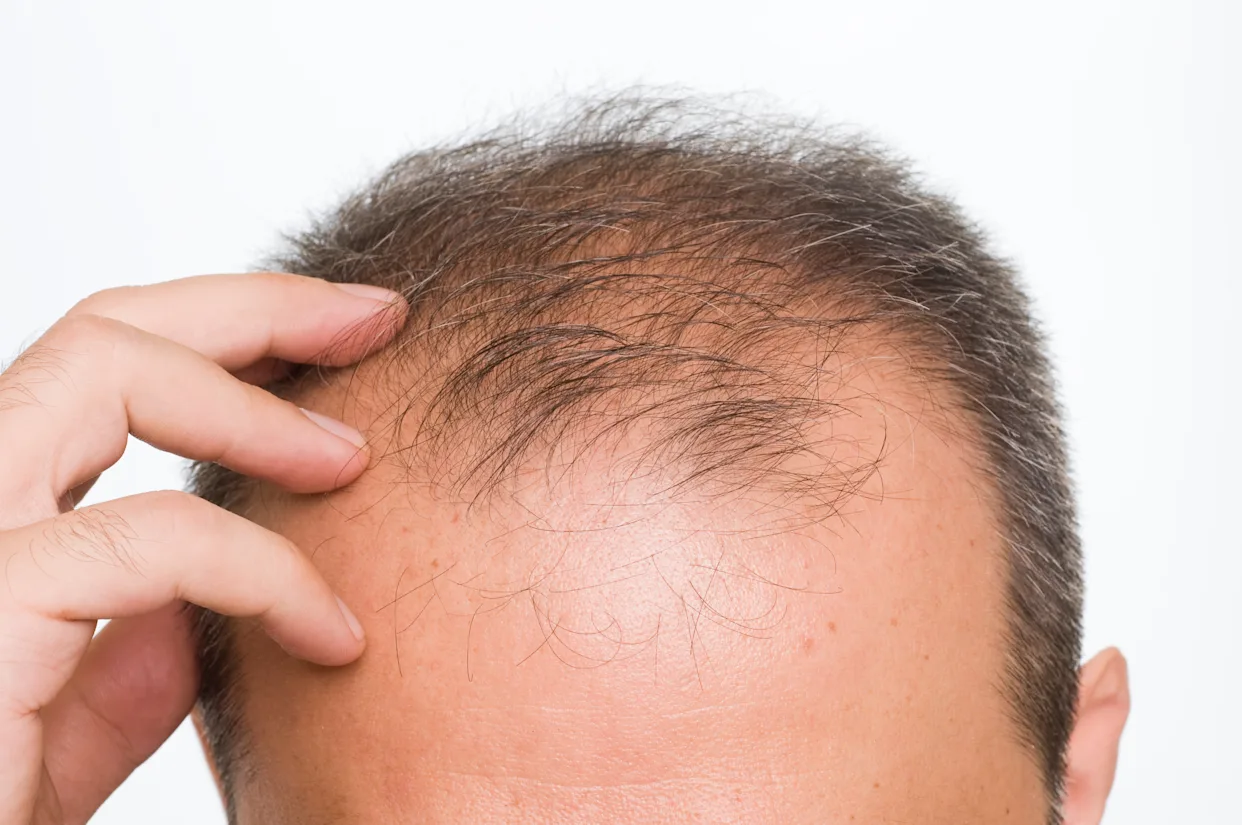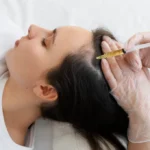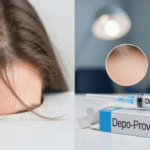Summary Surgery can sometimes lead to temporary hair loss due to stress, anesthesia, nutrition, or pressure during long procedures. This article explains the science behind why does surgery cause hair loss, how long it lasts, and proven strategies to prevent or treat it. You’ll also find recovery timelines, expert insights, and actionable tips for regrowth. …
Summary
Surgery can sometimes lead to temporary hair loss due to stress, anesthesia, nutrition, or pressure during long procedures. This article explains the science behind why does surgery cause hair loss, how long it lasts, and proven strategies to prevent or treat it. You’ll also find recovery timelines, expert insights, and actionable tips for regrowth.
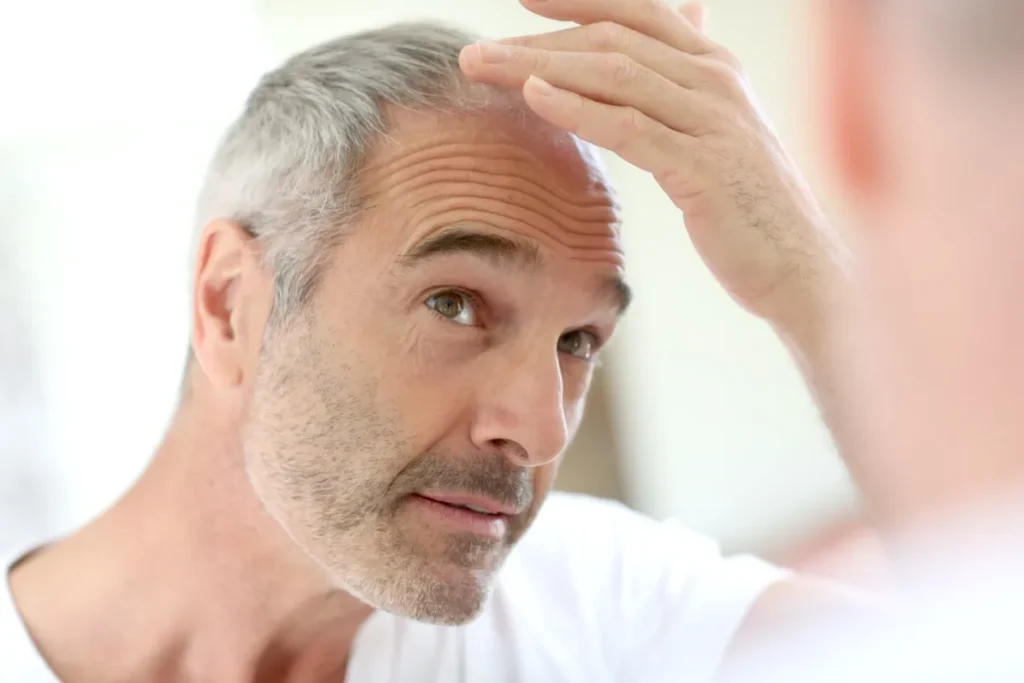
Table of Contents
Introduction
Have you noticed sudden shedding after an operation and wondered if surgery cause hair loss? Many patients face this concern after medical or cosmetic procedures. Hair loss post-surgery usually happens due to stress on the body, anesthesia effects, or nutritional changes. The good news is that in most cases it’s temporary. In this guide, you’ll learn the causes, timelines, preventive strategies, and recovery tips—so you can protect your hair and confidence while healing.
How Surgery Can Trigger Hair Loss
Telogen Effluvium as the Primary Mechanism
Most cases occur due to telogen effluvium, where hair prematurely enters the resting phase. The body diverts resources to healing, disrupting the natural growth cycle. Typically, shedding begins 2–3 months after surgery and resolves within a year.
Anesthesia, Hypotensive Techniques, and Hair Follicles
Some research shows that general anesthesia and medications used during surgery may impact hair follicles. Reduced blood supply or lowered oxygen levels during surgery can stress follicles, contributing to shedding.
Positional Alopecia / Pressure Factors
During long operations, the scalp may experience pressure from headrests or tight bandaging. This can reduce blood flow, causing positional alopecia—temporary hair loss at pressure points.
Medications & Postoperative Treatments
Drugs such as beta blockers, blood thinners, or anticonvulsants sometimes contribute to hair thinning. Post-operative antibiotics and pain medications may also play a minor role.
Nutritional Deficits & Surgical Stress
Procedures like bariatric surgery often lead to nutrient absorption issues. Deficiency in iron, zinc, folate, or protein directly weakens hair follicles. Stress hormones like cortisol also disturb the growth cycle.
Psychological Stress and Hormonal Shifts
Beyond physical strain, emotional stress after surgery elevates cortisol levels. This hormonal imbalance can worsen temporary hair loss.
Types of Surgery & Relative Hair Loss Risk
Cosmetic, Facelift, or Scalp Surgeries
These carry higher risk since incisions or tension occur near the scalp. Patients may experience local shock loss, though regrowth usually happens.
Bariatric / Weight-Loss Surgeries
Hair loss is very common here due to rapid weight changes and nutritional deficiencies. Proper diet and supplements are crucial.
Cardiac, Orthopedic, or Long Procedures
Extended surgeries mean prolonged head positioning, which can trigger pressure-related hair loss.
Head, Neck, and Neurosurgeries
Because scalp incisions or flaps are involved, localized hair loss may be seen. Some cases might result in scarring alopecia.
Multiple or Combined Surgeries
Patients undergoing several operations in a short period face cumulative stress, raising their risk of telogen effluvium.
Timeline & Stages of Post-Surgical Hair Loss
- Weeks 6–12: Onset Phase
Shedding usually begins quietly during this period. - Months 2–4: Peak Shedding
Hair loss is most noticeable, with increased shedding in showers or brushes. - Months 6–12: Recovery Phase
Regrowth begins. New baby hairs start appearing around the temples or thinning zones. - Beyond 12 Months: Red Flags
If hair does not regrow by this stage, or if patches worsen, it may indicate scarring alopecia or another medical issue.
Preventive Measures Before & Around Surgery
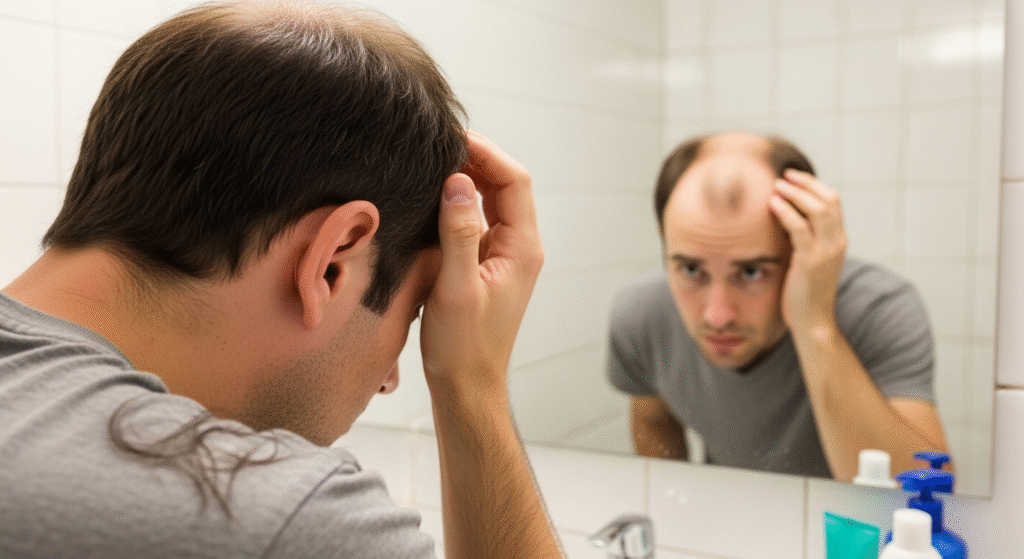
- Consult Your Surgeon Early
Share your hair loss concerns and medical history. - Optimize Nutrition
Ensure adequate protein, iron, zinc, and vitamins before surgery. - Review Medications
Ask about drug side effects linked to hair thinning. - Scalp Protection
Use proper padding during long procedures to minimize pressure points. - Mental Preparation
Stress management techniques such as meditation or breathing exercises reduce hormonal triggers.
Postoperative Care & Recovery Strategies
- Balanced Diet & Supplements
Follow a nutrient-rich diet and correct any deficiencies with prescribed supplements. - Gentle Hair Care
Use mild shampoos, avoid heat styling, and minimize pulling hairstyles. - Medical Therapies
Options like topical minoxidil or low-level laser therapy can help but should be approved by your doctor. - Stress & Sleep
Adequate sleep and stress reduction improve recovery speed. - Specialist Consultation
If shedding continues, see a dermatologist for targeted treatment.
Real Patient Cases
- Case Example: A patient who underwent a facelift experienced hair thinning around incision areas. Within eight months, hair regrowth was visible after nutritional support and topical therapy.
FAQs
Why did my hair start falling out months after surgery?
Surgery triggers telogen effluvium, where follicles shift to a resting phase. Shedding typically starts 2–3 months later.
How long does post-surgery hair loss last?
Most cases resolve within 6–12 months.
Is this hair loss permanent?
In most cases, no. Permanent loss occurs only if scarring or underlying conditions exist.
Which surgeries cause the most hair loss?
Bariatric and scalp-involved procedures carry higher risks.
Can I use hair growth treatments right away?
Always consult your surgeon before starting minoxidil, biotin, or other therapies.
When can I resume exercise or sweating?
Light activity is usually safe after a few weeks, but always follow your surgeon’s recovery timeline.
When should I see a specialist?
If shedding worsens after 9–12 months or bald patches appear, consult a dermatologist.
Conclusion
Persistent hair loss beyond 12 months, patchy bald spots, or signs of scarring need professional evaluation. Conditions like thyroid disease or hormonal imbalances should also be checked.
Ready To Take Your Next Step
If you’re struggling with post-surgery hair loss, don’t wait and worry. Book a consultation with Dr. Rana Irfan in Islamabad today for expert evaluation, tailored recovery advice, and treatment options to restore both your hair and confidence.

